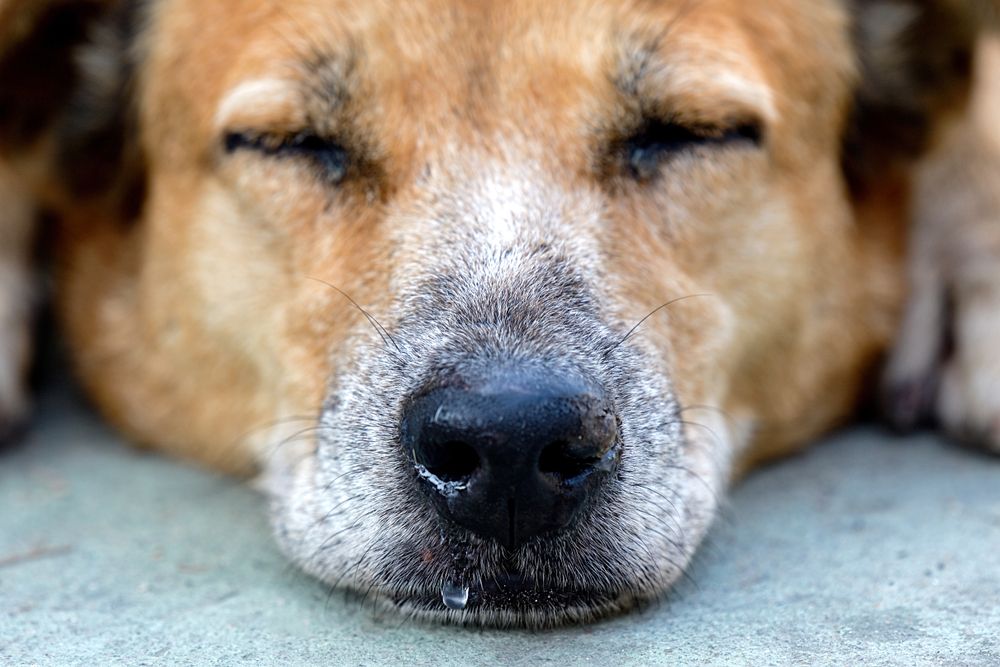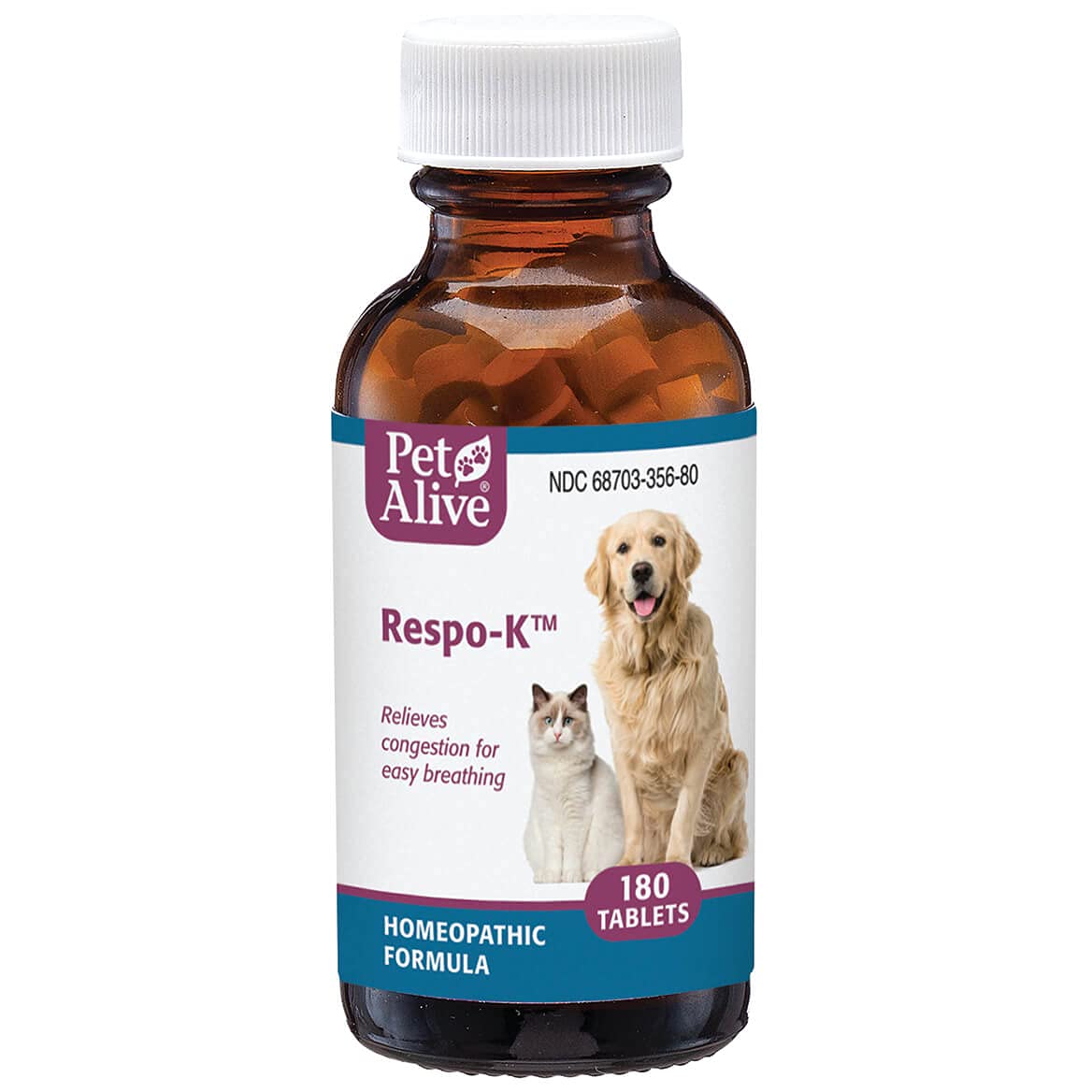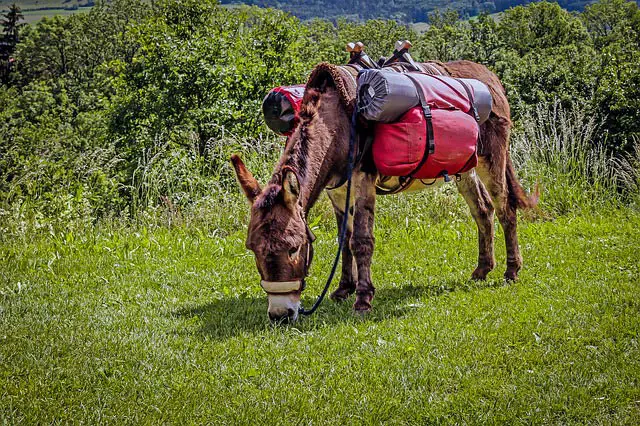Why Do Dogs Get Colds?
Dogs get colds due to viral infections, and it can be cured by providing proper care and rest. Just like humans, dogs can also catch colds.
It is common for them to experience coughing, sneezing, and runny noses when they are infected with viruses. This can happen when they come into contact with other dogs who are already sick, or they may be exposed to the virus in their environment.
While a dog cold may not seem serious, it is important to provide them with the necessary care and support to help them recover quickly. We will explore why dogs get colds and how to effectively cure them. By understanding the causes of dog colds and implementing appropriate remedies, you can ensure your furry friend’s well-being and restore their health in no time.

Exploring The Common Viral Infections
Dogs can catch colds just like humans, but it’s important to understand why and how to treat them. Discover the common viral infections that affect dogs and learn about effective remedies.
Canine colds can be caused by various viral infections that affect a dog’s respiratory system. These infections can lead to symptoms such as coughing, sneezing, nasal discharge, and general discomfort. In order to effectively treat and cure these colds, it’s important to understand the role of different viruses.
Let’s explore the most common viral infections that can affect dogs and how they contribute to cold-like symptoms.
Discussing The Role Of Canine Adenovirus
- Canine adenovirus (CAV) is one of the primary culprits behind respiratory infections in dogs. There are two types of CAV: CAV-1 and CAV-2.
- CAV-1 primarily causes infectious canine hepatitis, but it can also lead to respiratory symptoms, including cold-like signs.
- CAV-2 is more commonly associated with respiratory infections and is often the cause of kennel cough, a highly contagious condition.
- It spreads through respiratory secretions, direct contact, or contaminated surfaces, making it easy for dogs in close proximity to transmit the virus.
Examining The Impact Of Parainfluenza Virus
- Parainfluenza virus is another common viral infection that can lead to cold-like symptoms in dogs.
- It is a highly contagious virus that primarily affects the respiratory system, causing symptoms such as coughing, sneezing, and nasal discharge.
- Parainfluenza virus is often one of the components in the kennel cough complex, which includes multiple pathogens that contribute to respiratory infections.
- It can easily spread through respiratory droplets from infected dogs and is particularly common in places where dogs gather, such as boarding facilities or dog parks.
Understanding The Connection To Respiratory Syncytial Virus
- Respiratory syncytial virus (RSV) is a less common viral infection in dogs but can still contribute to cold-like symptoms.
- RSV primarily affects the respiratory system and can cause symptoms such as coughing, sneezing, and nasal discharge.
- It spreads through direct contact with respiratory secretions or contaminated surfaces, making it important to maintain good hygiene practices to prevent its transmission.
- Although less prevalent in dogs compared to humans, RSV can still pose a risk, especially in young, older, or immunocompromised dogs.
These common viral infections play a significant role in causing cold-like symptoms in dogs. By understanding the role of canine adenovirus, parainfluenza virus, and respiratory syncytial virus, pet owners can take appropriate measures to prevent and treat colds in their beloved pets.
Seek veterinary guidance for accurate diagnosis and treatment options tailored to your dog’s specific needs. Remember, providing a clean and stress-free environment, along with proper vaccination, can help reduce the risk of viral respiratory infections in dogs.
Evaluating Bacterial Infections In Dogs
Dogs can get colds due to bacterial infections. Learn how to evaluate and cure these infections to help your furry friend get back to their playful self.
Uncovering The Dangers Of Bordetella Bronchiseptica:
Bordetella bronchiseptica is a highly contagious bacterial infection that can lead to respiratory problems in dogs. This bacterium is the primary cause of kennel cough, a condition characterized by a persistent dry cough and nasal discharge. Here’s what you need to know about the dangers associated with Bordetella bronchiseptica:
- Common symptoms of Bordetella bronchiseptica infection:
- Persistent dry cough
- Sneezing
- Nasal discharge
- Mild fever
- How dogs contract Bordetella bronchiseptica:
- Direct contact with infected dogs
- Exposure to contaminated surfaces, such as kennels or water bowls
- The importance of vaccination in preventing Bordetella bronchiseptica:
- Vaccination is crucial to protect your furry friend from this contagious infection.
- Regular booster shots help maintain immunity against Bordetella bronchiseptica.
- Treating Bordetella bronchiseptica:
- Veterinary care is essential to diagnose and treat this bacterial infection.
- Antibiotics may be prescribed to help eliminate the bacteria.
- Provide a quiet, stress-free environment to aid in a speedy recovery.
Exploring The Link Between Streptococcus Zooepidemicus And Canine Colds:
Streptococcus zooepidemicus is another bacterial infection that can contribute to canine colds. Understanding the connection between this bacterium and respiratory issues in dogs is important for their overall health. Let’s delve into the details:
- Recognizing the symptoms of Streptococcus zooepidemicus infection:
- Persistent cough
- Difficulty breathing
- Lethargy
- Loss of appetite
- How dogs contract Streptococcus zooepidemicus:
- Contact with infected animals, including horses and other dogs
- Exposure to contaminated environments, such as veterinary clinics or shelters
- The implications of Streptococcus zooepidemicus in canine health:
- This bacterium can lead to severe respiratory infections, including pneumonia, in dogs.
- Prompt veterinary attention is necessary to prevent complications.
- Treatment options for Streptococcus zooepidemicus:
- Antibiotics prescribed by a veterinarian are necessary to combat the infection.
- Adequate rest and a warm, comfortable environment can aid in the recovery process.
- Follow your veterinarian’s advice regarding any additional treatments or care needed.
The Role Of Environmental Factors
Environmental factors play a significant role in the occurrence of colds in dogs. Exposure to cold weather, damp conditions, and contact with infected animals can all contribute to the development of a cold. To cure it, providing a warm and comfortable environment, keeping them hydrated, and consulting a veterinarian for appropriate treatment are essential.
Dogs, just like humans, can catch a cold from time to time. While most people associate colds with humans, it is important to note that dogs are susceptible to them as well. In this section, we will examine the role of environmental factors in the development of colds in dogs and how they can be cured.
Analyzing The Influence Of Temperature And Humidity Levels:
- Extreme temperatures, both hot and cold, can weaken a dog’s immune system, making them more prone to colds.
- When dogs are exposed to cold temperatures for extended periods, their nasal passages can become dry, leading to increased vulnerability to cold-causing viruses.
- On the other hand, high humidity levels can also contribute to the development of colds in dogs, as damp conditions create a favorable environment for viruses to thrive.
Examining The Impact Of Exposure To Damp And Crowded Environments:
- Dogs that spend a significant amount of time in damp environments, such as wet fields or kennels, are at a higher risk of catching a cold.
- Similarly, dogs that are regularly in crowded places or socialize with other dogs are more likely to come into contact with infectious viruses, increasing their chances of catching a cold.
Understanding The Connection Between Stress And Weakened Immune System:
- Stress plays a significant role in the overall health of dogs, including their immune system function.
- When a dog experiences stress, whether due to changes in their environment or routine, it can weaken their immune system, making them more susceptible to colds.
- A weakened immune system is less able to fight off viral infections, which can lead to the development of cold symptoms in dogs.
Curing a dog’s cold involves providing them with proper care, rest, and necessary medical treatment. By understanding the environmental factors that contribute to the development of colds in dogs, we can take steps to prevent them and ensure our canine companions stay healthy and happy.
Remember, a healthy environment leads to a healthier dog!
Identifying Common Signs Of Canine Cold
Dogs can catch colds just like humans, and it’s important to recognize the signs. Look out for symptoms such as coughing, sneezing, and nasal discharge. Treating your furry friend with plenty of rest, fluids, and possible medication can help them recover.
Dogs, just like humans, are susceptible to getting colds. However, their cold symptoms may differ slightly from ours. It is important for dog owners to be able to identify the common signs of a canine cold in order to provide appropriate care and seek treatment if necessary.
This section will discuss three key signs to look out for: nasal congestion and discharge, coughing and sneezing, and lethargy and loss of appetite.
Discussing Nasal Congestion And Discharge:
- Runny nose: Look for excessive discharge from your dog’s nose. If you notice a clear or white fluid coming from their nostrils, it could be a sign of a cold.
- Stuffy nose: Observe if your dog is having trouble breathing through their nose. They may sneeze more frequently or breathe with their mouth open to compensate for the congestion.
- Watery eyes: Notice if your dog’s eyes are tearing up or appear watery. This can be another indication of nasal congestion.
Examining Coughing And Sneezing:
- Coughing fits: Pay attention to any coughing episodes your dog may have. If they are experiencing frequent coughing, it could be a symptom of a cold.
- Persistent sneezing: Take note if your dog is sneezing more often than usual. Just like humans, dogs tend to sneeze when they have a cold in order to clear their nasal passages.
Understanding Lethargy And Loss Of Appetite:
- Reduced energy: Observe if your dog seems more lethargic than usual. They may appear tired, uninterested in play or exercise, and spend more time sleeping.
- Decreased appetite: Keep an eye on your dog’s eating habits. If they are refusing their favorite treats or experiencing a loss of appetite for more than a day or two, it could be a sign of a cold.
Remember, these signs may vary in severity depending on the individual dog and the intensity of their cold. If you notice any of these symptoms persisting or worsening, it is always best to consult with a veterinarian for proper diagnosis and treatment.
In the next section, we will explore effective ways to cure a canine cold.
Distinguishing Allergies From Colds
Dogs can exhibit cold-like symptoms, but it is important to distinguish between a cold and allergies. Understanding why dogs get colds and how to treat them can help ensure their health and well-being.
It’s not uncommon for our furry friends to experience a runny nose or sneezing, but it’s essential to identify whether it’s an allergy or a cold. While both conditions share some similarities, there are key differences to look out for.
In this section, we’ll explore the symptoms of allergies in dogs and compare them to the signs of a common cold.
Exploring The Symptoms Of Allergies In Dogs
Allergies can cause discomfort and distress for dogs, just like they do in humans. Understanding the symptoms can help you differentiate between allergies and a cold. Here are some common signs of allergies in dogs:
- Itchy skin, which can lead to excessive scratching or licking.
- Frequent sneezing, especially after exposure to potential allergens.
- Runny or watery eyes, possibly accompanied by redness.
- Recurring ear infections or excessive ear scratching.
- Chronic diarrhea or vomiting, often caused by food allergies.
- Respiratory problems, such as coughing or wheezing.
- Swollen paws, sometimes accompanied by paw licking.
- Skin rashes or hives.
Comparing The Similarities And Differences Between Allergies And Colds
Although allergies and colds share some similar symptoms, it’s crucial to recognize their differences to provide the appropriate treatment for your furry companion. Let’s take a closer look:
Similarities between allergies and colds:
- Sneezing and coughing can occur with both allergies and colds.
- Runny nose or watery eyes are common symptoms in both conditions.
- Both can cause discomfort to your furry friend.
Differences between allergies and colds:
- Allergies are typically ongoing or occur seasonally, while colds are usually temporary.
- Allergies often result in itchy skin and gastrointestinal issues, which are not commonly associated with a cold.
- Allergies tend to have triggers, such as specific food or environmental factors, whereas colds are caused by viruses.
- Colds can lead to more severe symptoms like fever and fatigue, which are not typically seen in allergies.
By understanding these similarities and differences, you can better distinguish between allergies and colds in dogs. If you notice symptoms persisting or worsening, it’s always best to consult with a veterinarian to ensure a proper diagnosis and treatment plan. Remember, prompt identification and appropriate care will help keep your furry companion comfortable and healthy.

Recognizing When A Cold Requires Veterinary Attention
Dogs can catch colds, just like humans, but it’s important to recognize when they need veterinary attention. Learn about the causes of canine colds and how to effectively treat them to ensure your furry friend stays healthy.
:
When it comes to your beloved furry friend, recognizing the signs of a cold and knowing when to seek veterinary attention is crucial. While most colds in dogs are mild and resolve on their own with proper care, there are instances where professional assistance is necessary.
Below are some guidelines to help you determine if your dog’s cold requires veterinary attention:
- Persistent and worsening symptoms: If your dog’s cold symptoms persist for more than a few days or if they seem to be getting worse, it is best to consult with a veterinarian. This includes symptoms like prolonged coughing, severe nasal congestion, and difficulty breathing.
- Lack of improvement with home remedies: A mild cold can often be managed with home remedies such as rest, hydration, and a balanced diet. However, if your dog’s condition does not improve or if it worsens despite these efforts, it is recommended to seek medical assistance.
- Unusual behavior or lethargy: Dogs with colds may experience a decrease in energy levels and become lethargic. However, if your dog appears unusually weak, depressed, or shows signs of discomfort, it is advisable to have a vet examine them to rule out any underlying complications.
- Loss of appetite or dehydration: A decreased appetite is common during a cold, but if your dog refuses to eat or shows signs of dehydration such as dry gums, sunken eyes, or loss of skin elasticity, it is important to seek veterinary attention promptly.
- Presence of additional symptoms: While a common cold typically involves mild respiratory symptoms, the presence of additional symptoms may indicate a more serious condition. These could include fever, vomiting, diarrhea, or any other unusual signs not commonly associated with a cold.
Remember, as a responsible pet owner, it is always better to err on the side of caution when it comes to your dog’s health. If you notice any concerning symptoms or have doubts, it is recommended to consult with a veterinarian who can provide the necessary guidance and care for your furry companion.
Providing Symptom Relief At Home
Discover why dogs get colds and learn effective at-home remedies for providing symptom relief. From understanding the causes to finding proper cures, our guide will help you ensure your furry friends stay healthy and happy.
When your furry friend is feeling under the weather with a cold, there are several ways you can provide them with relief right in the comfort of your own home. By focusing on rest and isolation, exploring natural remedies and over-the-counter medications, and ensuring adequate hydration and nutrition, you can help alleviate your dog’s cold symptoms and aid in their recovery.
Discussing The Benefits Of Rest And Isolation:
- Rest: Allow your dog to rest and sleep as much as they need, as this will help their body fight off the cold more effectively.
- Isolation: Keep your dog away from other pets to prevent the spread of the infection and to minimize stress on their weakened immune system.
Exploring Natural Remedies And Over-The-Counter Medications:
- Warm steam: Create a steamy environment in the bathroom by turning on the hot shower and sitting with your dog for about 10 minutes. The steam can help alleviate congestion and ease breathing.
- Saline nasal drops: Using saline nasal drops can help relieve nasal congestion in dogs. Gently administer a few drops into each nostril as directed by your veterinarian.
- Honey: Natural honey can soothe a sore throat and provide relief from coughing. Add a small amount of honey to your dog’s food or offer it separately as a treat.
- Veterinarian-approved medications: Consult your vet for recommendations on over-the-counter medications that can alleviate cold symptoms in dogs, such as decongestants or cough suppressants. Follow their advice and dosage instructions carefully.
Understanding The Importance Of Hydration And Nutrition:
- Water: Ensure your dog has access to fresh, clean water at all times. Staying hydrated will help their body fight off the infection and prevent dehydration, especially if they have a fever.
- Appetizing meals: Offer your dog palatable and nutritious meals to support their immune system during the cold. Warm meals can also provide additional comfort.
- Bone broth: Provide your dog with bone broth, as it is highly nutritious and can help boost their immune system. Consider making homemade bone broth or purchase a high-quality, low-sodium option from the store.
Remember to always consult your veterinarian before administering any medications or remedies to your dog, as their professional guidance will ensure the appropriate course of action for your pet’s specific situation. With some tender loving care and these home remedies, your furry companion will be feeling better in no time.
Preventative Measures To Reduce The Risk Of Dog Colds
One common concern for dog owners is the risk of their furry friends getting a cold. Understanding why dogs get colds and taking preventative measures can help keep them healthy. Discover effective ways to reduce the risk and learn how to cure it if it does occur.
Dogs, just like humans, are susceptible to catching colds. Understanding the causes and preventive measures for dog colds is crucial in keeping our furry friends healthy and happy. In this section, we will explore three key aspects that can help reduce the risk of dog colds: Vaccinations, regular veterinarian check-ups, and maintaining a clean and stress-free environment.
Examining The Role Of Vaccinations In Preventing Viral Infections:
- Vaccinations play a vital role in protecting dogs from various viral infections, including those that can cause cold-like symptoms.
- Core vaccines, such as those for distemper, parvovirus, and adenovirus, are highly effective in preventing serious illnesses that can weaken a dog’s immune system.
- Additional vaccinations, such as for kennel cough, can provide added protection against respiratory infections commonly associated with colds.
- By ensuring your dog is up-to-date with their vaccinations, you can significantly reduce their susceptibility to viral infections and minimize the risk of developing cold-like symptoms.
Discussing The Benefits Of Regular Veterinarian Check-Ups:
- Regular visits to the veterinarian are essential in maintaining your dog’s overall health and well-being.
- Veterinarians can detect potential health issues early on, including any signs of respiratory infections that may lead to colds.
- During check-ups, veterinarians may administer preventive treatments, such as deworming or flea control, which can indirectly contribute to a stronger immune system.
- Your veterinarian can provide tailored advice on maintaining your dog’s immune health, ensuring they’re less likely to develop colds.
Understanding The Importance Of Maintaining A Clean And Stress-Free Environment:
- A clean environment is vital in reducing the risk of respiratory infections for your dog.
- Regularly cleaning their living space, such as bedding, toys, and food bowls, helps minimize the presence of viruses and bacteria that can cause colds.
- Avoid exposing your dog to crowded or poorly ventilated areas, as these environments can increase the risk of viral transmission.
- Reducing stress in your dog’s life can also play a significant role in maintaining a strong immune system. Stress can weaken their defenses and make them more susceptible to infections.
- Engaging in regular exercise, providing mental stimulation, and creating a calm and peaceful environment can help reduce the likelihood of your dog catching a cold.
By taking these preventive measures, you can significantly reduce the risk of your furry companion catching a cold. Remember to stay updated with vaccinations, schedule regular veterinarian check-ups, and maintain a clean and stress-free environment. Keeping your dog healthy and happy is key to preventing colds and ensuring they lead a long and vibrant life.
When To Consult A Veterinarian
If your dog has developed a cold, it’s best to consult a veterinarian to determine the underlying cause and the most effective course of treatment for their recovery.
Exploring The Circumstances That Require Professional Advice:
- If your dog’s cold symptoms persist for more than a week, it is important to consult a veterinarian.
- Additionally, if the symptoms worsen or seem to be causing discomfort or distress to your dog, seeking professional advice is essential.
- A veterinarian will be able to accurately diagnose the underlying cause of your dog’s cold and recommend appropriate treatment options.
- They can also rule out any other more serious conditions that may have similar symptoms to a cold.
- Moreover, if your dog has any pre-existing health conditions or is on medication, it is crucial to consult a veterinarian to ensure safe and effective treatment.
- When in doubt, it is always better to seek professional advice to ensure the well-being of your furry friend.
Understanding When Medication May Be Necessary:
- In some cases, a veterinarian may prescribe medication to alleviate your dog’s cold symptoms.
- This may include cough suppressants to provide relief from persistent coughing or nasal decongestants to reduce congestion.
- The use of antibiotics may be necessary if a bacterial infection is present, as colds in dogs are often caused by viral or bacterial infections.
- However, it is important to note that self-medicating your dog with over-the-counter medications meant for humans can be dangerous and should be avoided.
- Only use medications prescribed by a veterinarian and follow their instructions carefully to ensure proper dosage and administration.
Discussing Potential Complications And Long-Term Management Options:
- While most colds in dogs are mild and resolve on their own, there can be potential complications, especially in certain cases.
- Dogs with weakened immune systems or underlying health conditions may be more susceptible to developing complications from a cold.
- These complications can include secondary infections, such as pneumonia, or worsening of existing conditions.
- In some cases, long-term management options may be necessary to reduce the frequency and severity of colds in dogs.
- This may involve strengthening your dog’s immune system through proper nutrition, supplements, and regular exercise.
- Additionally, avoiding exposure to cold and damp environments can help prevent colds in susceptible dogs.
- Your veterinarian can provide guidance on the best long-term management options based on your dog’s specific needs and health condition.
Remember, if your dog is showing signs of a cold, it is always best to consult a veterinarian to ensure proper diagnosis and treatment.
Frequently Asked Questions Of Why Do Dogs Get Colds? (And How To Cure It?)
How Do You Get Rid Of A Cold For A Dog?
To get rid of a cold for your dog, provide plenty of rest, keep them hydrated, and consult a veterinarian for appropriate treatment.
Can You Treat A Dog Cold At Home?
Yes, you can treat a dog cold at home by providing rest, keeping them warm, and offering fluids and nutritious food.
What Causes Colds In Dogs?
Colds in dogs are caused by viral infections that spread through contact with infected dogs or contaminated surfaces.
How Long Do Dog Colds Usually Last?
Dog colds typically last for about one to two weeks.
Conclusion
Understanding why dogs get colds is essential for their care and well-being. By recognizing the common symptoms and taking preventive measures, you can help your furry friend stay healthy and comfortable. Regular vaccinations, a nutritious diet, and a clean living environment all contribute to a strong immune system.
Should your dog catch a cold, rest, hydration, and over-the-counter remedies like decongestants and cough suppressants can provide relief. However, it’s crucial to consult with a veterinarian to ensure the appropriate treatment for your dog’s specific condition. Remember, prevention is always better than a cure, so take necessary precautions to minimize your dog’s exposure to cold viruses.
By being attentive and proactive, you can help keep your beloved pet happy and cold-free.







